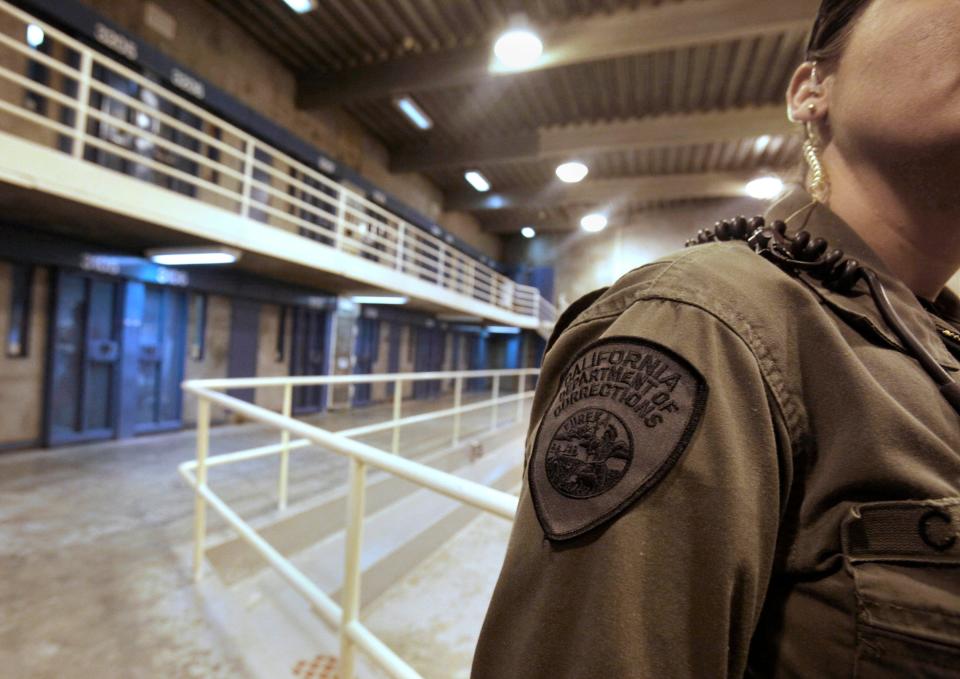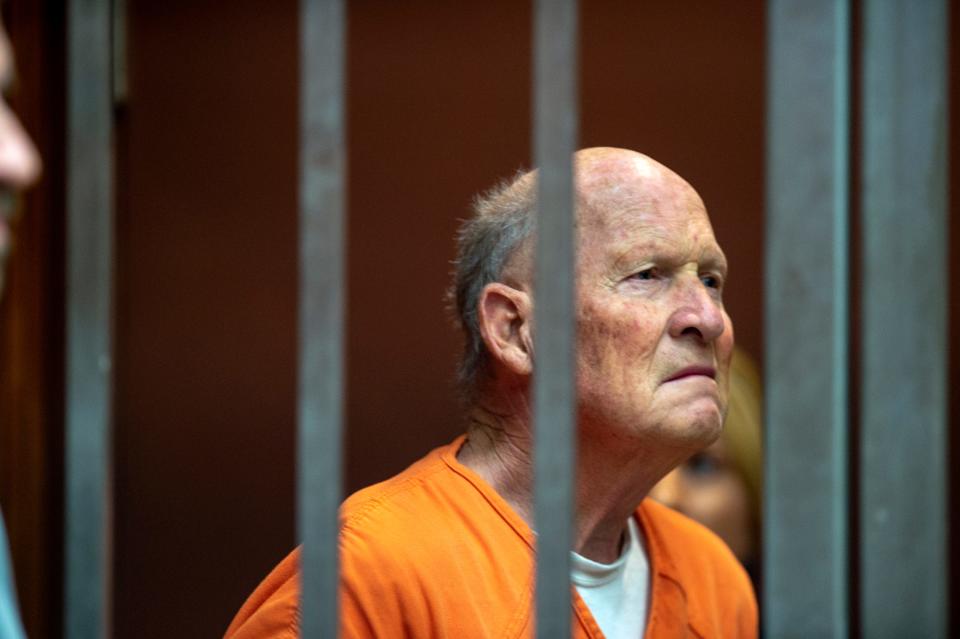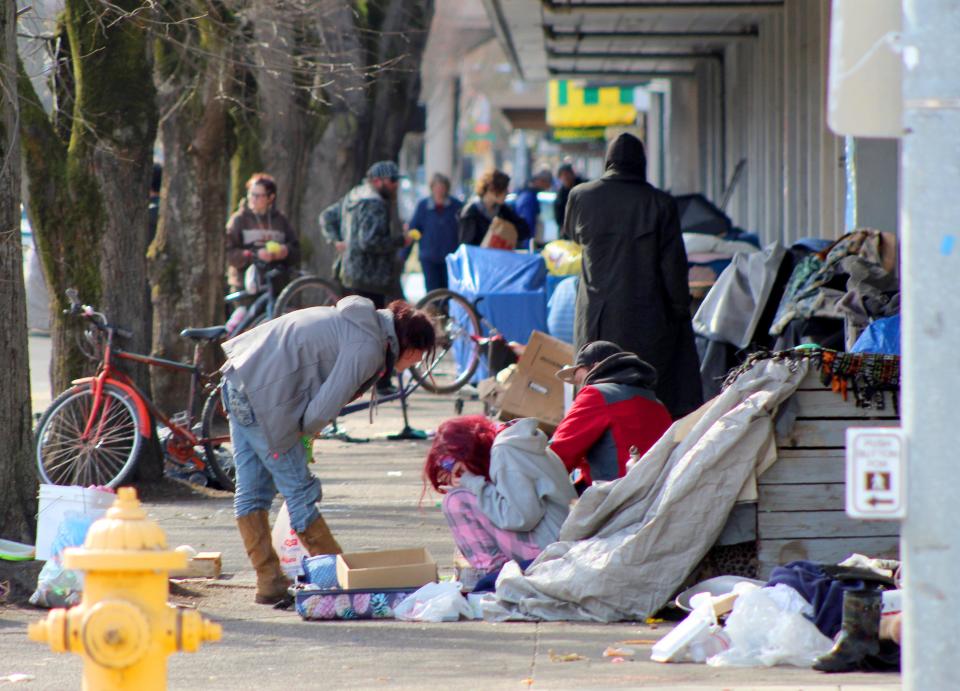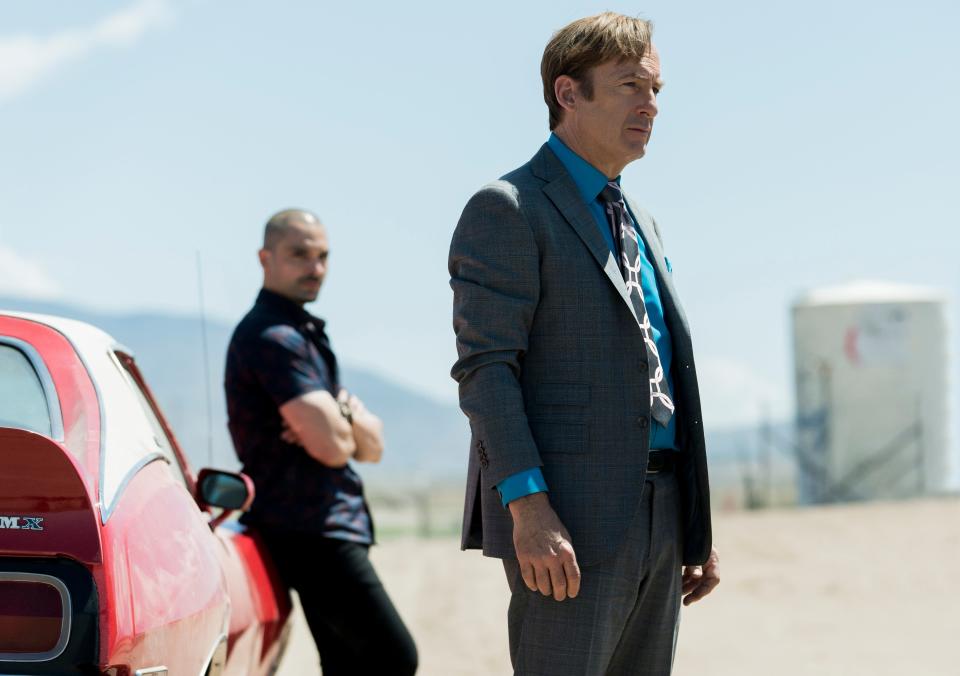In California: Closed, canceled and possible state takeovers in a time of coronavirus
Disneyland, March Madness, NHL, NBA: canceled. And Gov. Gavin Newsom follows up a public health directive that events over 250 people should be canceled or postponed with an executive order that allows the state to take over private assets for coronavirus treatment. But the Razzies must go on.
It's Arlene with news for Thursday.
But first, on this day in 1922 author Jack Kerouac was born. He wrote "Big Sur" and "Dharma Bums" but is maybe most famous for "On The Road." I love the book for the ways he takes me to California in the 1940s and 50s — San Francisco, Los Angeles and cotton fields in Fresno. The Guardian listed it No. 76 of the 100 best novels.
OK, let's get to it.
In California handpicks the most relevant, useful stories from across USA TODAY Network newsrooms and beyond. Sign up for free, weekday delivery.
State can take private assets for coronavirus; your questions + more
Readers, from asking how long the virus can survive on a dollar bill to treatment and testing, you asked us tons of questions about the coronavirus. We're answering them.
San Francisco’s 113 schools, which serve 54,000 students, will shut down for three weeks starting Monday.
Disneyland's shutting down starting Saturday; March Madness is no more; the NHL has suspended play for now and yesterday so did the NBA after a player tested positive with coronavirus.
Gov. Gavin Newsom on Thursday issued an 11-point executive order that allows the state to take over hotels, motels, and medical facilities in order to quarantine, isolate or treat coronavirus patients. That extends to private assets, which can be taken if they're needed.
Some patients have already moved to hotels. The governor said a 120-room hotel in San Carlos is now housing people who were previously quarantined on the Grand Princess cruise ship. The ship was docked in the Bay Area earlier this week and had passengers who had tested positive for the virus.
"As you can imagine, under our pandemic planning, we're also looking to secure additional assets," Newsom said.
On Thursday, the day after the World Health Organization declared COVID-19 a pandemic, there were over 230 cases in California. Four people have died. See a map of cases here.
The executive order (read it in its entirety here) also:
Delays the deadline for state tax filing from April 15 by 60 days for individuals and businesses that can't file because they're following public health requirements related to COVID-19.
Waives a one-week waiting period for people who are unemployed and disabled as a result of COVID-19 who are applying for benefits through the Employment Development Department.
Empowers local and state legislative bodies to hold meetings via teleconference without violating transparency laws by making them accessible to the public and having at least one member physically present at the location of the meeting.
Also Thursday, the California Department of Corrections and Rehabilitation announced it is ending normal visiting, including noncontact visits, over coronavirus concerns. No inmates had tested positive for coronavirus as of Wednesday.

CDCR said it will be canceling normal visitation "until further notice" in a statement on its website. Family visits will be held as scheduled, however.
Judge allows more cheek swabs in Golden State Killer case

The case against Joseph James DeAngelo, the 74-year-old former police officer who is accused of being the prolific serial killer responsible for terrorizing communities across California in the 1970s and '80s, moved forward Thursday. Prosecutors, meanwhile, continue to decide whether to accept his guilty plea in exchange for life in prison.
During the pretrial hearing, Sacramento Superior Court Judge Steve White ruled in favor of the prosecution's request that additional cheek swabs be collected for use as evidence.
But in the packed Sacramento courtroom, DeAngelo's defense team again charged that resources were unfairly allocated in favor of the prosecution, and called for clarification on how the team of district attorneys will decide on matters going forward.
Nearly two years since his arrest — and 40 years since the beginning of crime spree for which he is accused — DeAngelo has been charged on 26 counts, including kidnapping and 13 counts of murder. The statute of limitations has already expired on the dozens of rape cases in which he is accused.
Now back to a few more coronavirus headlines:
A particularly vulnerable place for homeless people

They don't have regular access to running water and have no home in which to "stay home," so the advice the rest of us are following to reduce the spread of coronavirus doesn't apply. Service providers and health experts are instead finding different ways to help the estimated 150,000 people in California who live on the streets or in shelters.
“What you are seeing is two crises — homelessness and the virus — collide,” says Margot Kushel, director of the Center for Vulnerable Populations at UC San Francisco.
There are other factors that make homeless people especially vulnerable. A significant number are over the age of 60 and also have chronic health problems, which puts them at higher risk of dying from the virus, said Brandon Brown, an associate professor in the Center for Healthy Communities at UC Riverside.
See what facilities and providers across the state are doing to help this high-risk group.
Another high-risk group: Why people with diabetes, like Tom Hanks, may be at increased risk of coronavirus.
Let the people buy toilet paper. If it makes a person feel better, it could in turn bolster their immune systems.
Small-business owners quickly felt the impact of the coronavirus, and it's causing many to rethink and readjust their strategies.
But save your money and get your water from the tap, writes the board president of a Coachella Valley water agency.
California may put into place a ban on evictions for people who can't pay rent because of the coronavirus outbreak.
Mitos desacreditados del Coronavirus: ¿Un arma biológica?, ¿una vacuna para vacas?
Across Tinseltown

"Better Call Saul," a Roseanne spinoff without Roseanne and nine other things to watch if you're staying in.
Most of Hollywood is canceling events (as is most of the world) but when it comes to celebrating the worst of cinema, the show must go on. I'm talking about the Razzies.
Audience-less TV shows: "Less like joyful distraction in a crisis than like a dispatch from a scared and dark world." Also, the "Price is Right" has temporarily shut down.
BART ordered to pay $6.3 million to family of man killed by transit officer
A federal jury ordered San Francisco area's BART transit system to pay more than $6.3 million to the family of a Northern California man fatally shot by a transit officer following an altercation with another man in 2018.
John Burris, a well-known civil rights lawyer who represents the family of Sahleem Tindle Jr., said Thursday that relatives are pleased with the verdict against Bay Area Rapid Transit.
BART officer Joseph Mateu was on duty at the West Oakland station when he heard shots fired outside the station. He found Tindle tussling with another man over a handgun and shot him in the back.
The officer had no information regarding who fired the weapon or who was the owner, and he did not seek to get the information. Alameda County prosecutors in October 2018 declined to file criminal charges against Mateu, saying the officer acted reasonably and had to make a split-second decision.
Flash floods, how CA voted and a weight(y) problem for pets
Flash flood warnings have been issued for parts of SoCal.
Californians voted in last week's presidential primary (remember those?) but in nowhere near-record numbers.
We're not the only ones gaining weight. The Association for Pet Obesity Prevention estimates more than half of cats and dogs are obese.
Lastly, I'll leave you with a hamster who knows how washing hands is done and other coronavirus TikToks and memes.
In California is a roundup of news from across USA TODAY Network newsrooms. Also contributing: Associated Press, East Bay Times, Hollywood Reporter, California Health Report, TMZ, San Francisco Chronicle, San Diego Union-Tribune.
This article originally appeared on USA TODAY: Coronavirus, flash floods, Disneyland, officer shooting: Thurs news

